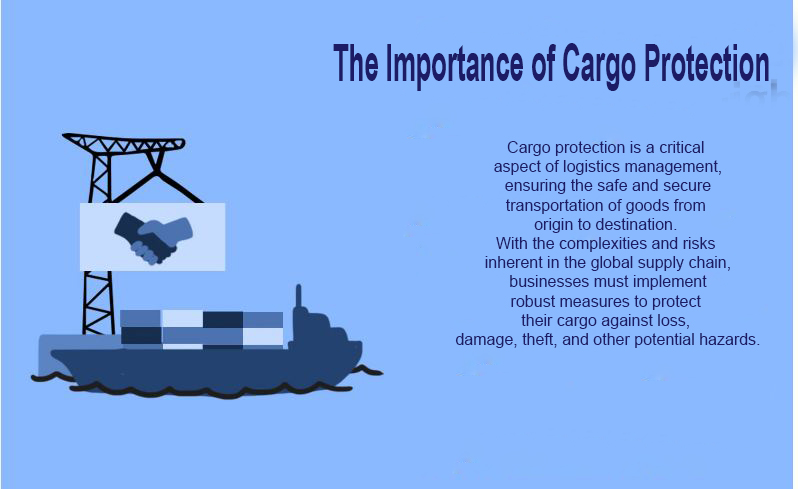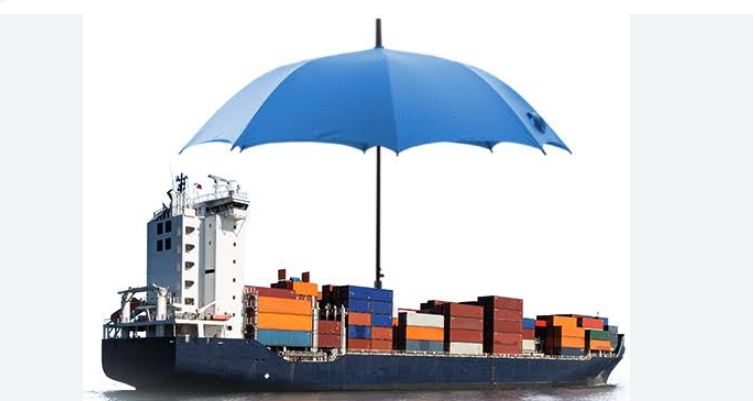Key Strategies for Cargo Protection | This article contain the key strategies for safeguarding shipments, and the role of insurance in mitigating risks for businesses engaged in transportation and logistics.
The Importance of Cargo Protection
Cargo protection is a critical aspect of logistics management, ensuring the safe and secure transportation of goods from origin to destination. With the complexities and risks inherent in the global supply chain, businesses must implement robust measures to protect their cargo against loss, damage, theft, and other potential hazards.
Understanding Cargo Protection:
Cargo protection encompasses a range of measures designed to safeguard goods and merchandise during transit. It involves proactive planning, risk assessment, and implementation of preventive and reactive measures to minimize the likelihood of cargo loss or damage.
Cargo protection measures may include secure packaging, proper handling procedures, effective tracking and monitoring systems, and insurance coverage to mitigate financial risks.
Importance of Cargo Protection:
Cargo protection is essential for businesses involved in transportation and logistics for several reasons:
- Financial Risk Mitigation: Protects businesses against financial losses resulting from cargo loss, damage, theft, or spoilage during transit, minimizing the impact on profitability and operational efficiency.
- Customer Satisfaction: Ensures timely and intact delivery of goods to customers, enhancing trust, satisfaction, and loyalty, and maintaining positive relationships with clients and partners.
- Regulatory Compliance: Helps businesses comply with industry regulations, customs requirements, and contractual obligations related to cargo handling, transportation, and insurance coverage.
- Brand Reputation: Demonstrates professionalism, reliability, and commitment to quality service, strengthening the brand reputation and competitiveness of businesses in the marketplace.
- Operational Continuity: Minimizes disruptions to supply chain operations, reducing the risk of delays, disputes, and costly liabilities associated with cargo loss or damage.
Key Strategies for Cargo Protection:
To effectively protect cargo during transit, businesses can implement the following key strategies:
- Secure Packaging: Use sturdy and protective packaging materials to safeguard goods from physical damage, moisture, and environmental factors during handling and transportation.
- Proper Handling Procedures: Train personnel in proper cargo handling techniques to minimize the risk of accidents, mishandling, and damage during loading, unloading, and transit.
- Quality Control Measures: Implement quality control checks and inspections to ensure the integrity, condition, and compliance of cargo with regulatory standards and customer specifications.
- Tracking and Monitoring Systems: Deploy advanced tracking technologies, such as GPS tracking devices and RFID tags, to monitor the location, status, and condition of cargo in real-time and mitigate the risk of theft or loss.
- Security Measures: Enhance security protocols and measures, such as tamper-evident seals, surveillance cameras, and security escorts, to deter theft, vandalism, and unauthorized access to cargo shipments.
- Insurance Coverage: Obtain comprehensive cargo insurance coverage to protect against financial losses resulting from unforeseen events, including theft, fire, natural disasters, accidents, and acts of God.
Role of Insurance in Cargo Protection:
Cargo insurance plays a vital role in mitigating financial risks and uncertainties associated with transporting goods. It provides financial compensation to businesses for the value of lost or damaged cargo, helping to offset the cost of replacement, repair, or reimbursement.
Cargo insurance policies typically offer coverage for various perils and risks encountered during transit, including theft, fire, collision, water damage, and acts of God. By securing adequate insurance coverage, businesses can minimize the financial impact of cargo losses and disruptions to supply chain operations.
Conclusion:
Cargo protection is a fundamental aspect of logistics management, ensuring the safe and secure transportation of goods from origin to destination. By implementing proactive measures, such as secure packaging, proper handling procedures, advanced tracking technologies, and insurance coverage, businesses can effectively mitigate the risks of cargo loss, damage, and theft.
As global supply chains continue to evolve and face new challenges, cargo protection remains a critical priority for businesses engaged in transportation, logistics, and international trade.
By prioritizing cargo protection strategies and leveraging insurance solutions, businesses can safeguard their shipments, maintain operational continuity, and enhance customer satisfaction in an increasingly competitive marketplace.
Safeguarding Shipments: A Comprehensive Guide to Freight Insurance



